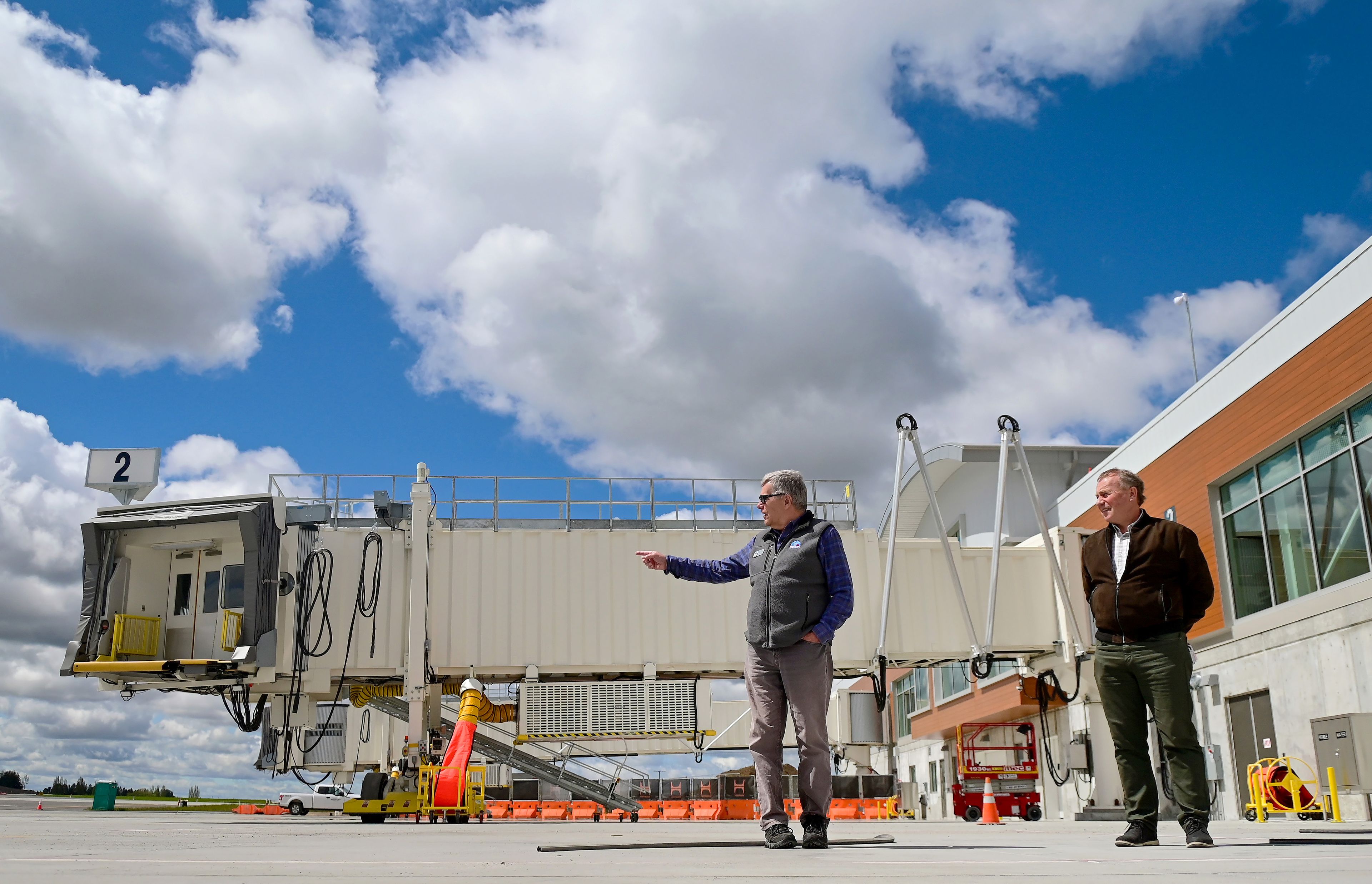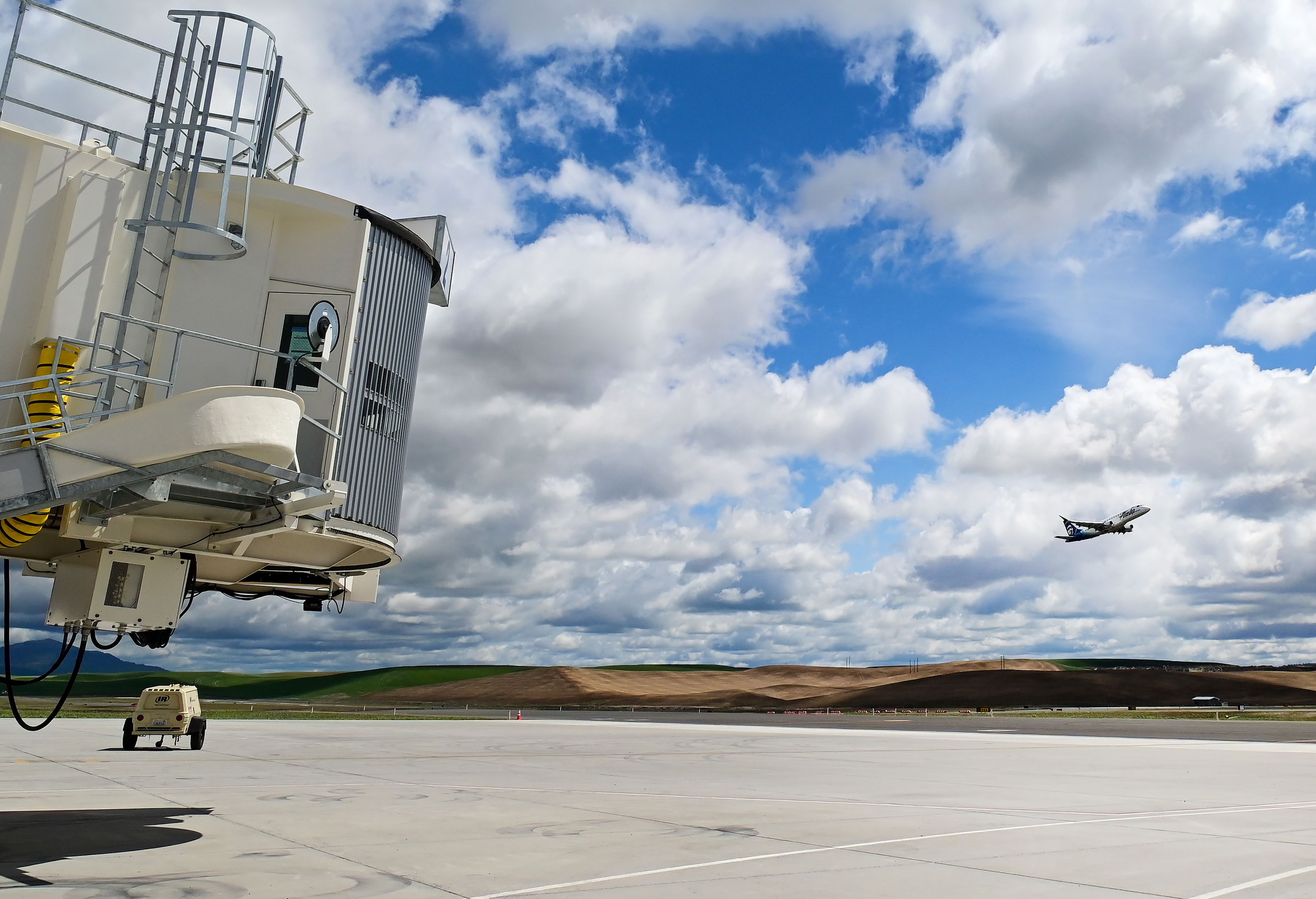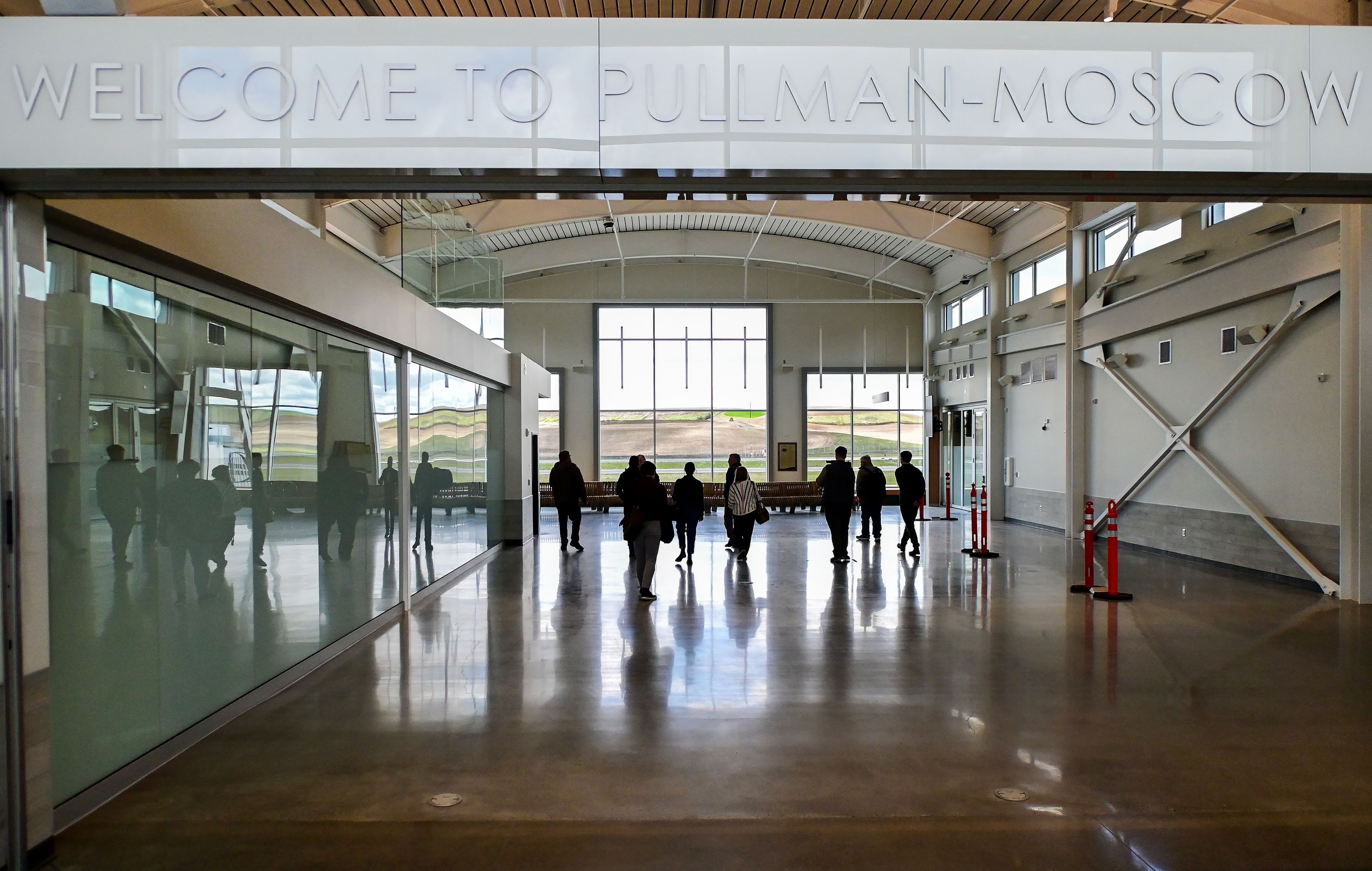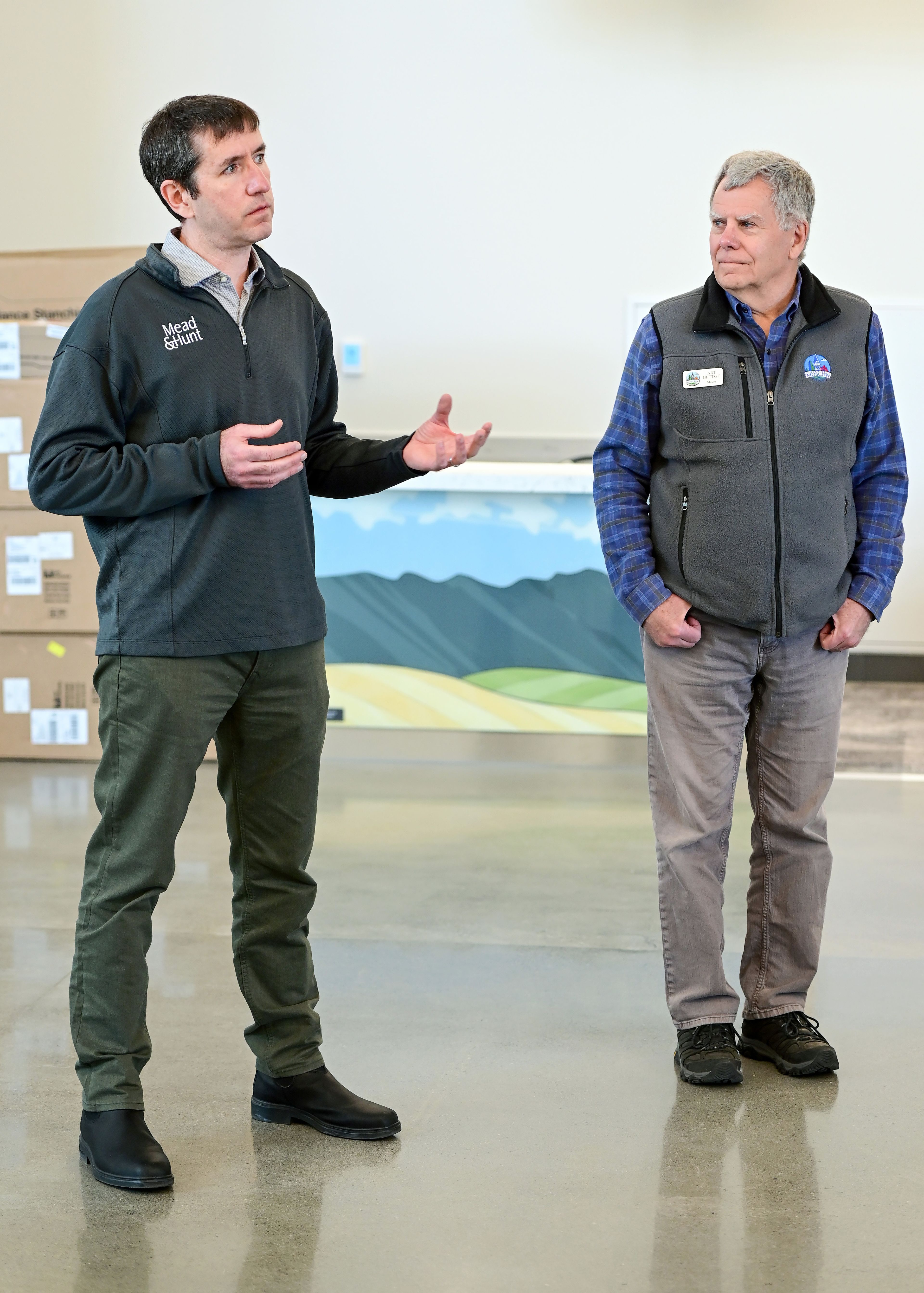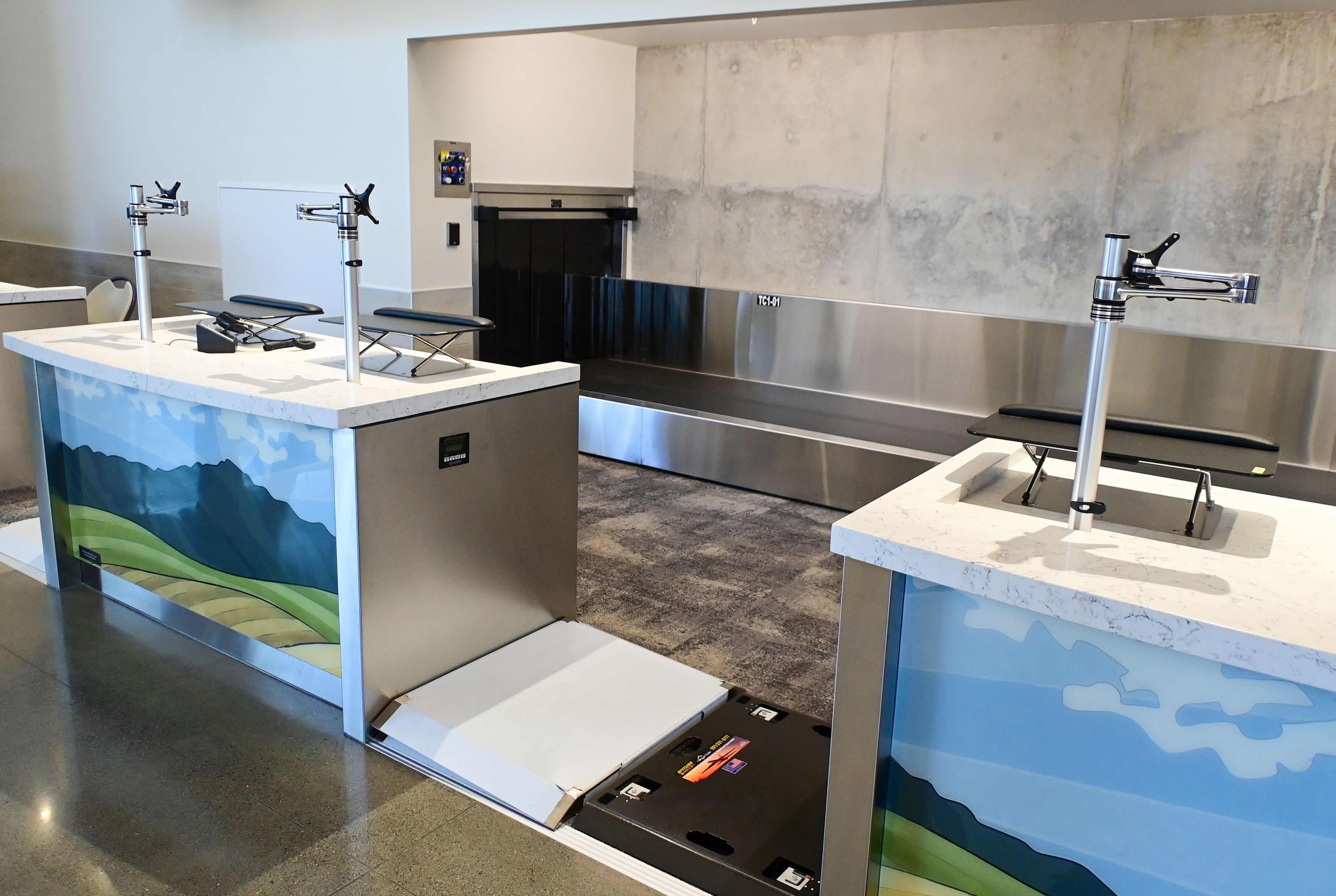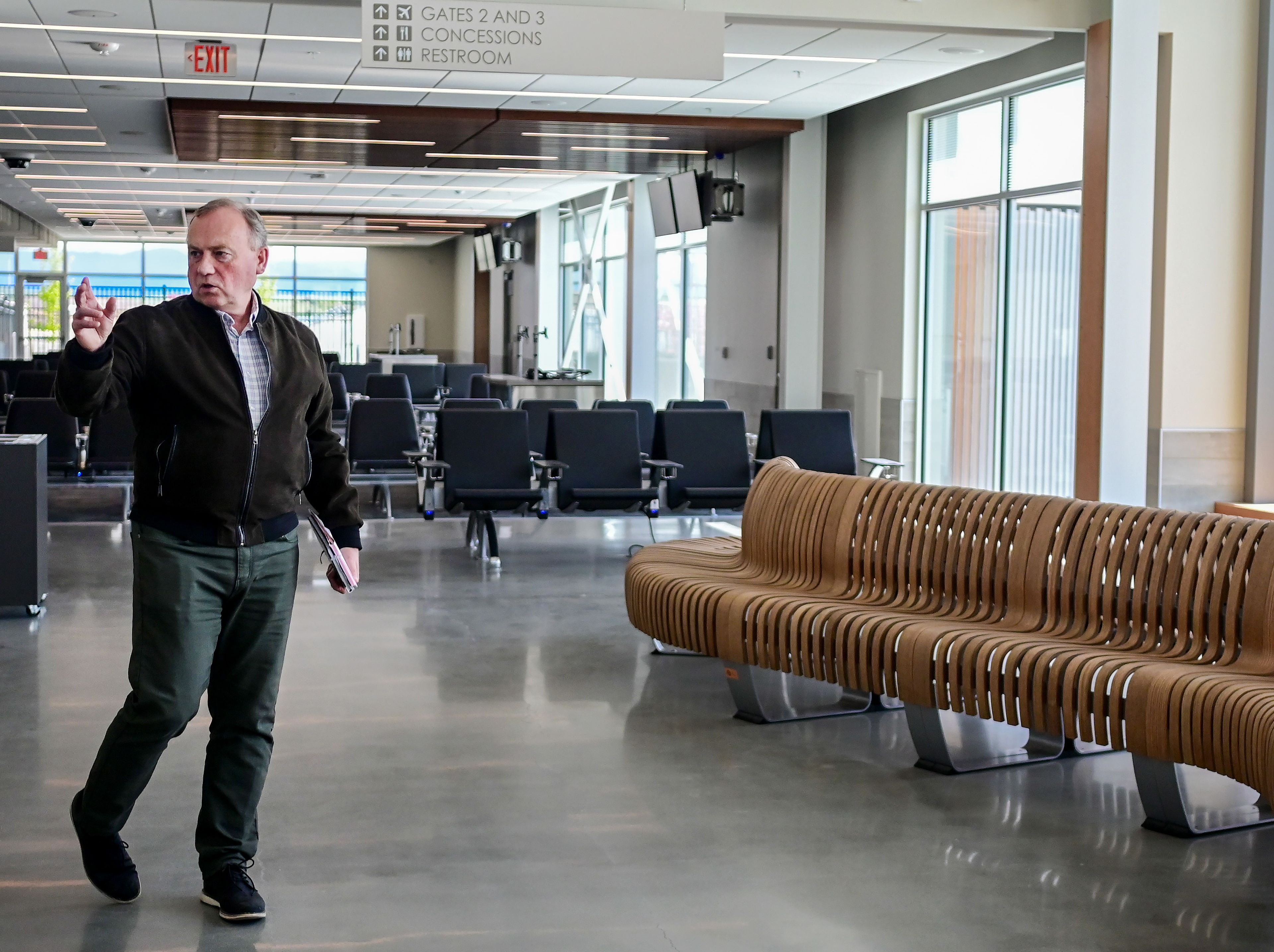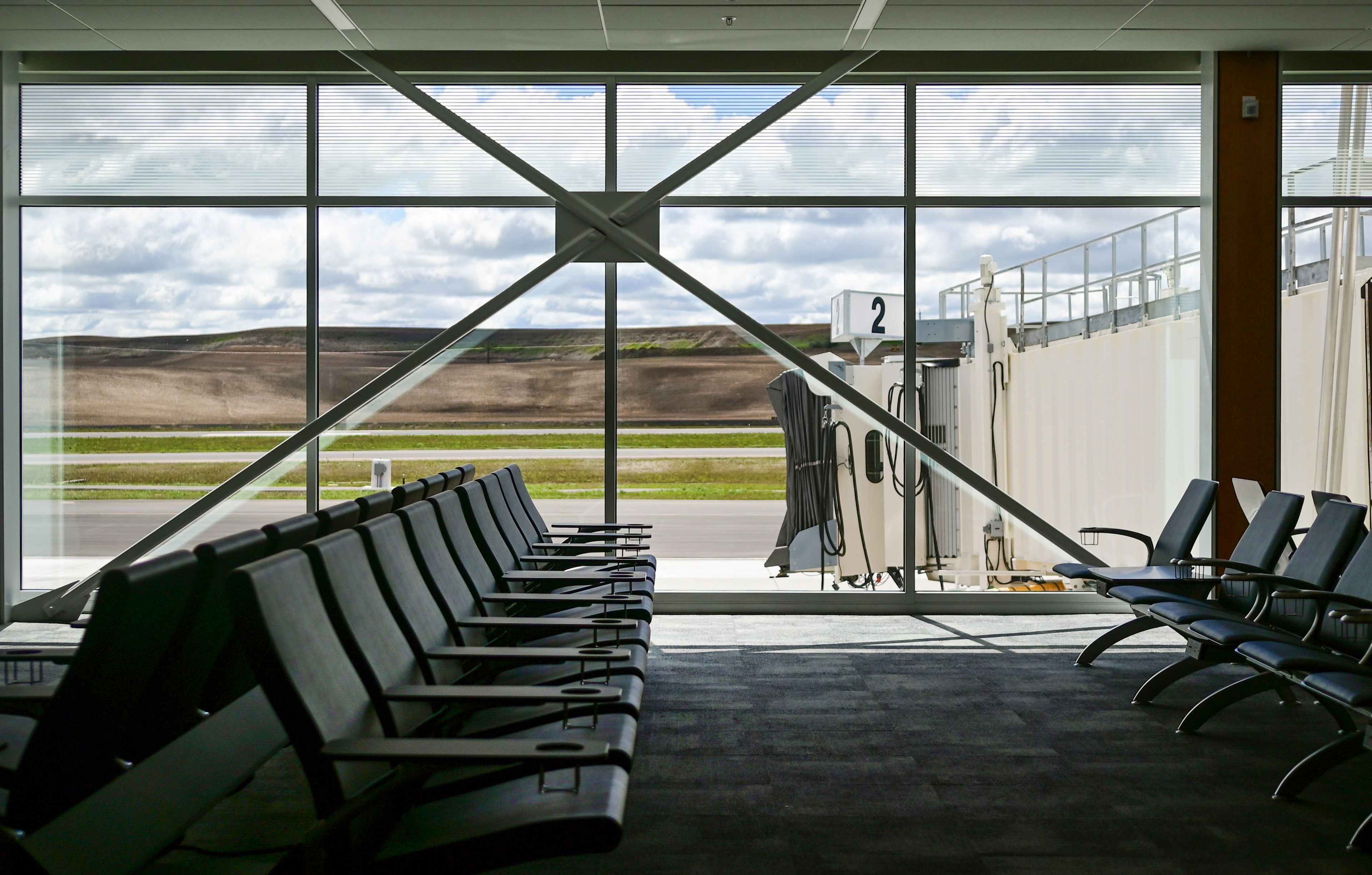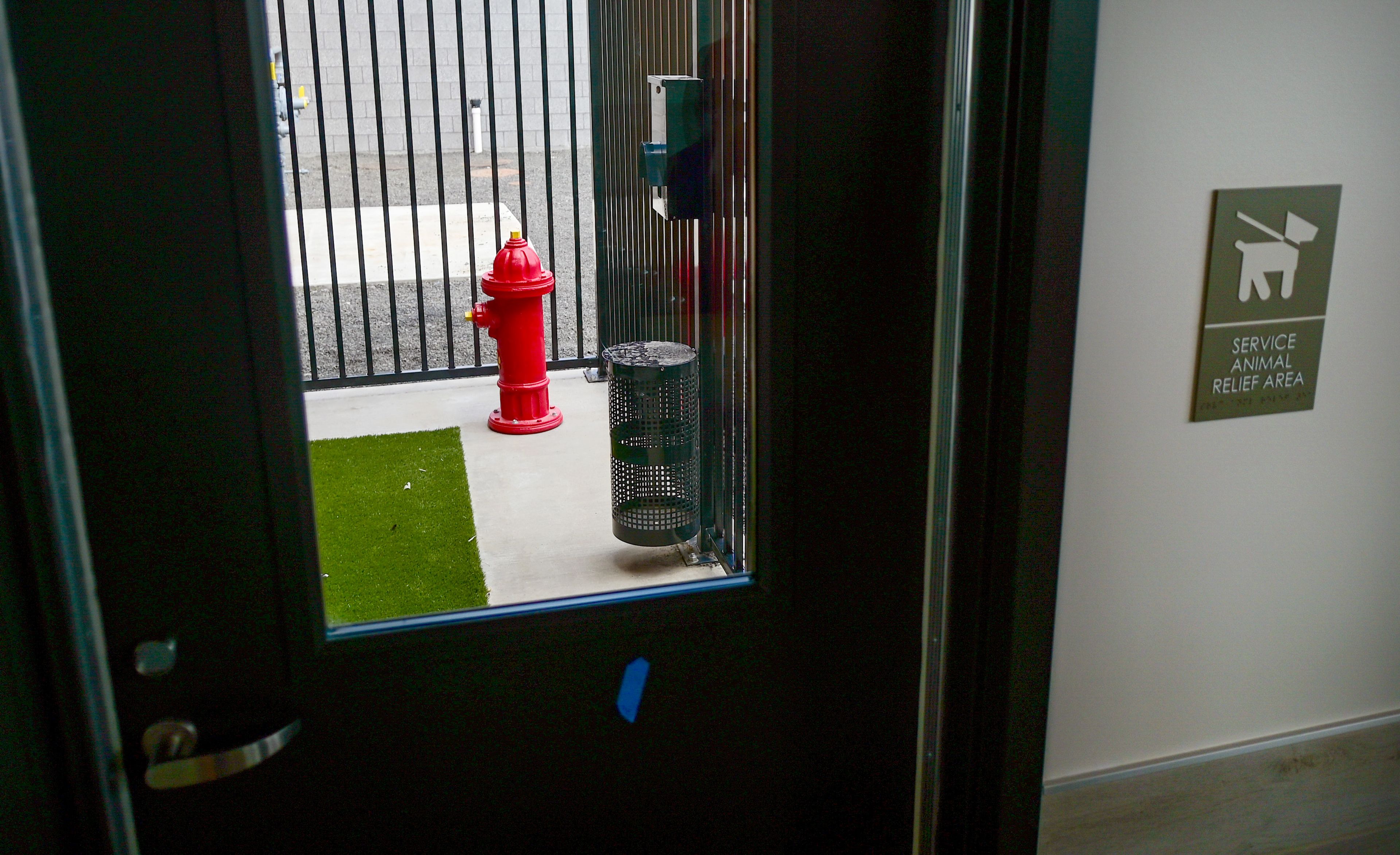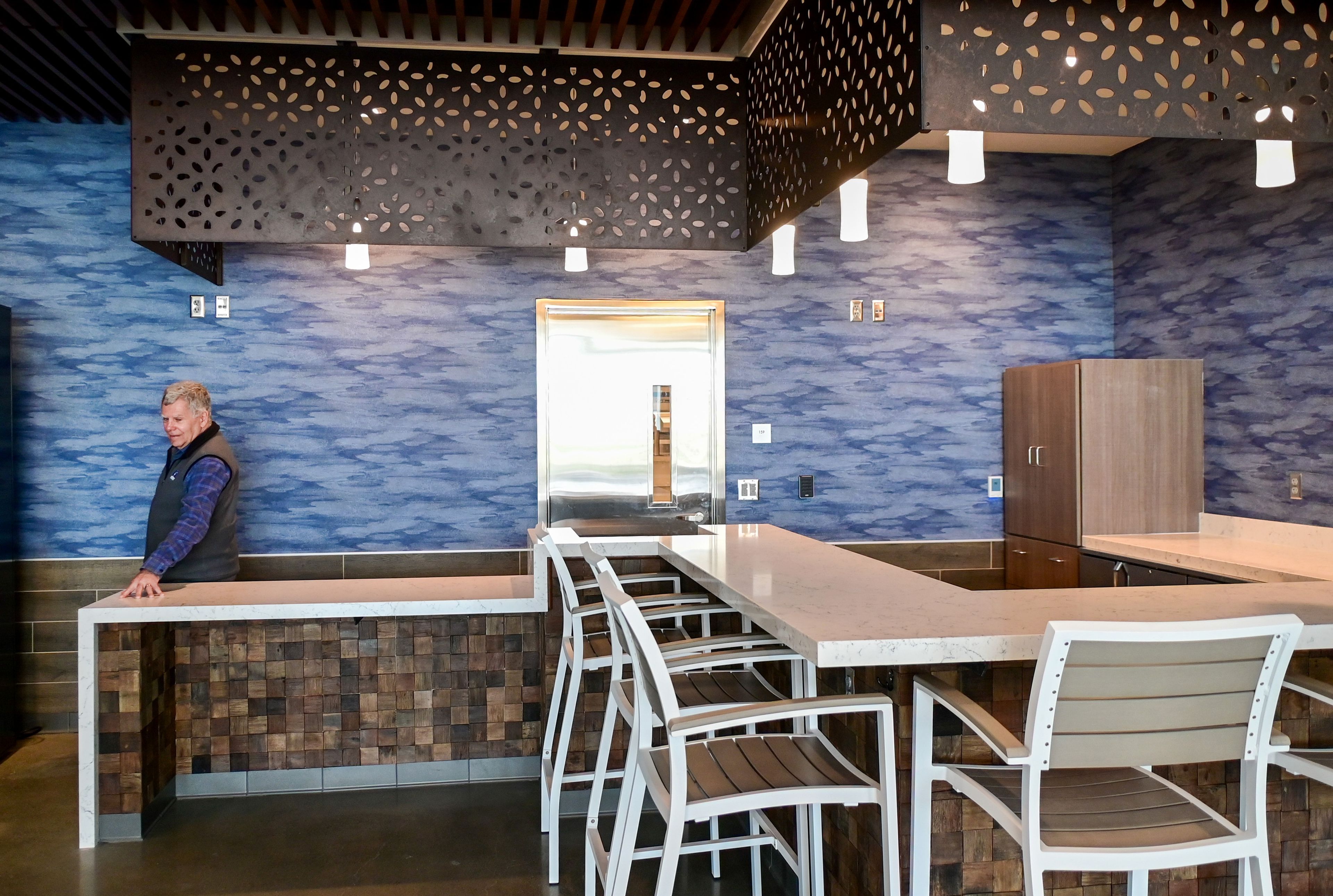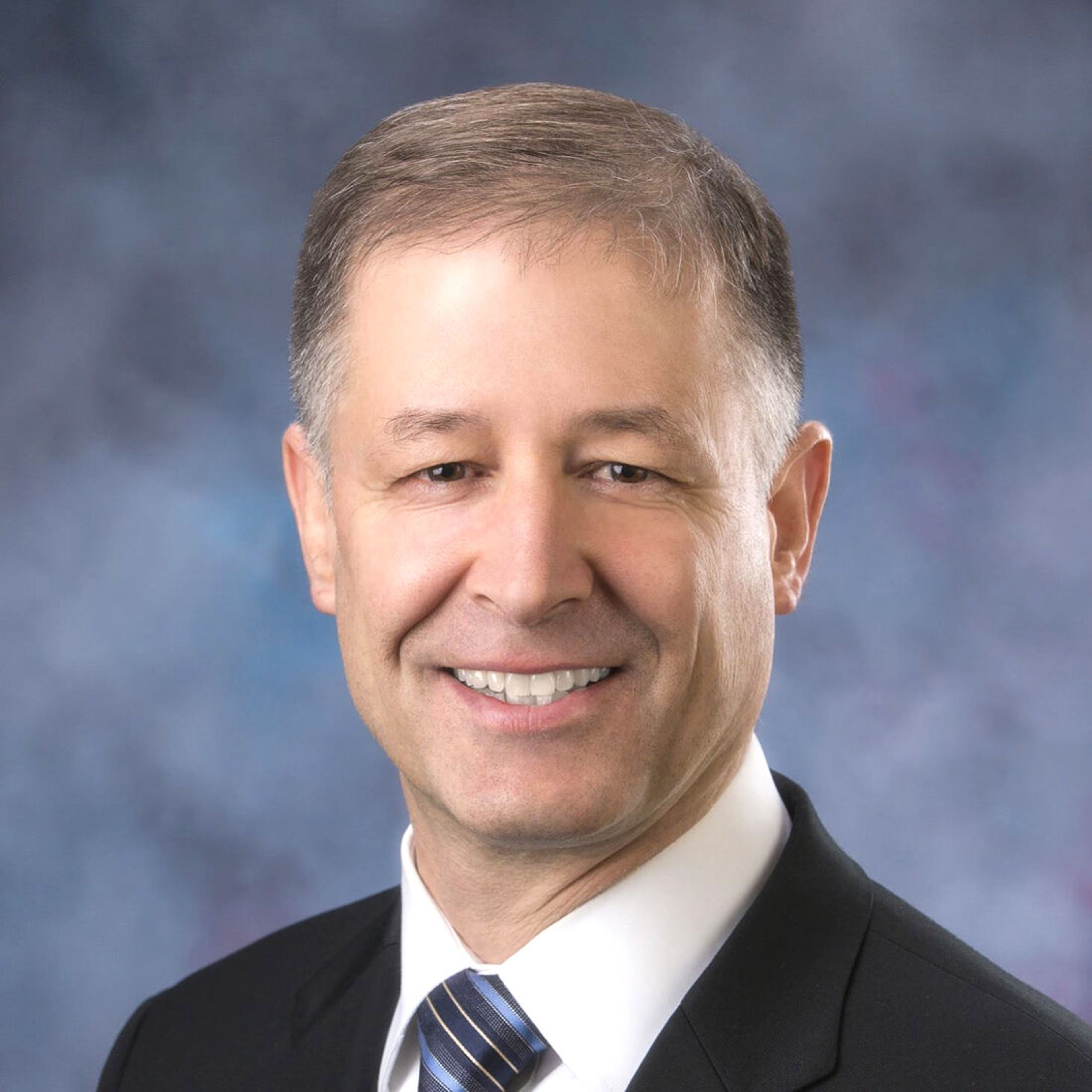Pullman airport terminal almost ready for takeoff (WITH VIDEO)
Pullman-Moscow Regional Airport prepares for soft opening of new terminal this month
As the Pullman-Moscow Regional Airport prepares to move into its new space, crews are hard at work putting the final touches on its coming terminal.
The airport will softly launch the facility later this month, and is expecting to finish the west expansion in August this year.
The terminal will begin serving guests May 22. Pullman Mayor Francis Benjamin said a ribbon-cutting ceremony is planned for late summer when the work is completed.
Moscow Mayor Art Bettge said the multi-year project has come a long way, but there’s plenty of work to be done.
He said Alaska Airlines and airport and Transportation Security Agency staff are testing new features and utilities to ensure everything is in order before passengers start boarding flights.
Most of the terminal’s construction has been completed, though Bettge said around 5,000 feet on the west side are still being worked on.
Tim Dacey, business unit leader for architecture at Mead and Hunt, a national civil engineering firm, said the project began in 2018 when the airport realized it was outgrowing its facility.
With additional flights, an increase of passengers and its switch to jet service, the airport’s executive director, Tony Bean, said a larger terminal was beginning to become necessary.
The Federal Aviation Administration accepted the airport’s four-year Capital Improvement Plan for the new terminal that year, he said.
Before it could get started on the terminal, the airport had to build an expanded runway of around 600 feet at about $158 million, according to Bean. Construction lasted several years and was finished in October 2019.
This allowed an enhancement in flight services. Bean said Alaska Airlines replaced its Q400 turboprops with Embraer 175 jets in November 2023.
Dacey said construction on the terminal began in 2022. The $92 million project created 47,000 square feet compared to around 8,000 in its old facility.
For perspective, Benjamin said the TSA check area is roughly the same size as the entire old terminal.
It includes new amenities that weren’t available in its current space. The new parking lot has 426 spaces, compared to 320 at the other building, and 90 rental car spaces, as well as a two-hour free parking limit, Bettge said.
There are two bridges allowing passengers to board without stepping outside, complete with heating and air conditioning, he added. The airport has the capacity to create a third bridge and gate.
Benjamin said a new baggage claim carousel was built, spanning two floors with TSA and airport staff to load and check items before they’re sent up to patrons. He added an elevator was constructed to transport oversized baggage.
The basement contains baggage claim infrastructure, airline offices and TSA employee offices, he said. This area is not available to the public.
On the main floor, Benjamin said about 160 seats are available with two tables equipped with wireless charging. There’s a separate space for passengers on university athletic charters or other charter aircrafts to go through security screening, as well as three ticket and rental car counters.
Two lanes will be offered for the TSA screening process to reduce wait times.
The terminal has a 178,000-gallon tank next to the taxiway to collect driving fluid to be disposed of properly.
Other features include a service-animal relief area, a courtyard area with seating, conference rooms, more restrooms, heated sidewalks and a soon-to-come Mamava lactation pod.
The terminal also has space for a restaurant and merch spot, providing concessions on both sides and a bar on the boarding and landing side. A full kitchen was built into the facility, Bettge said.
A vendor hasn’t been selected to take over the space. He said a local business is preferred but not guaranteed.
Dacey said the terminal wouldn’t be complete without incorporating local elements. Former Pullman Mayor Glenn Johnson was chosen to voice announcements, and regional-themed artwork will fill the space.
Benjamin said flights to the airport will slow during the summer months and increase in the fall. Every day, two Seattle flights will land at the terminal. After Aug. 15, Seattle flights will grow to five or six a day and Boise flights will begin once a day.
Bettge said the old terminal must be used for aviation services. The airport is still debating what it will turn into, but Bettge said it will most likely become a cargo terminal.
Dacey said the project couldn’t have been completed without a huge community effort. He thanked Bean, along with Hoffman Construction, a general contractor, for performing the work. He also thanked the University of Idaho, Washington State University and the cities of Moscow and Pullman for their efforts.
Pearce can be reached at epearce@dnews.com.
